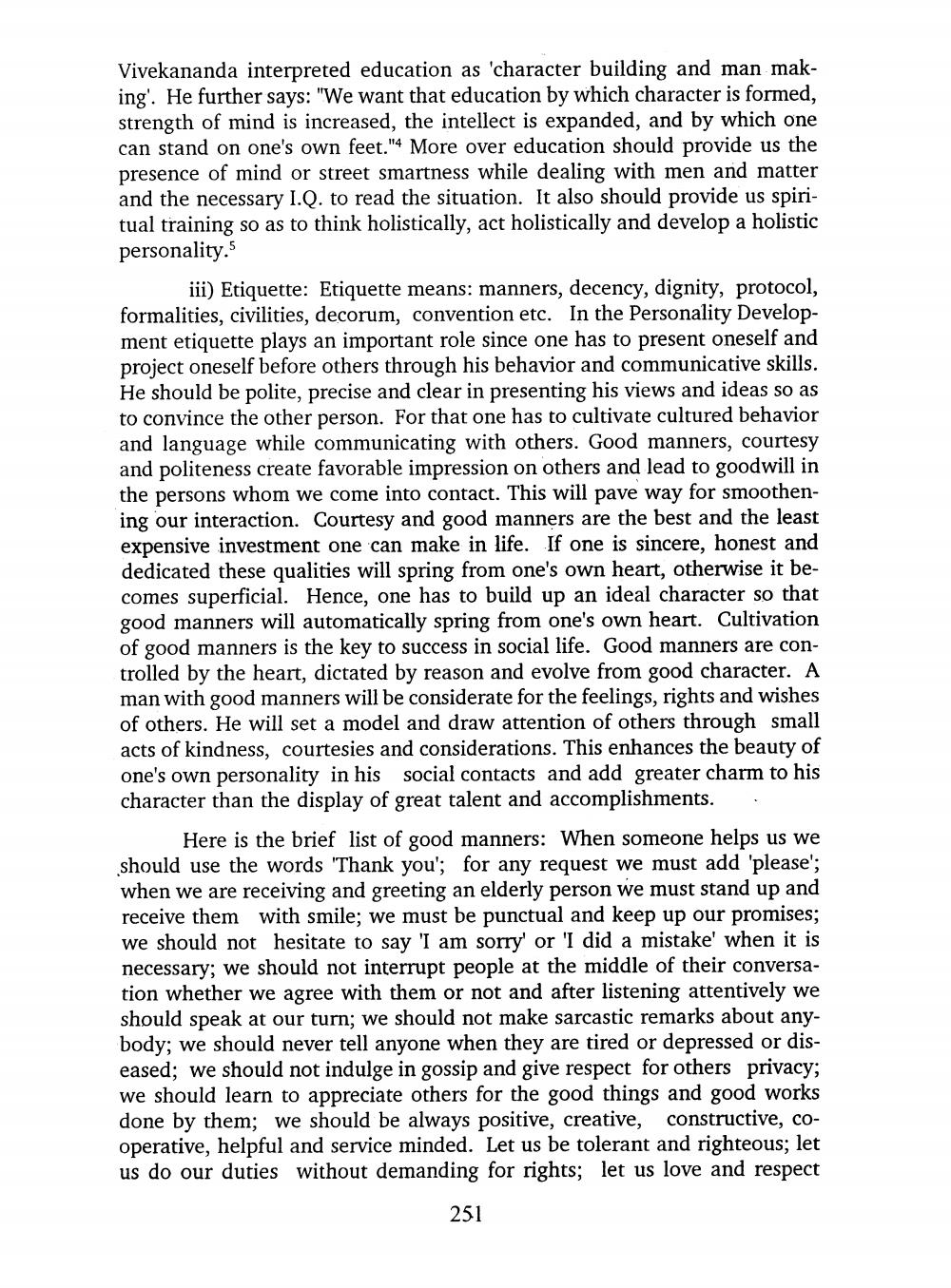________________
Vivekananda interpreted education as 'character building and man making. He further says: "We want that education by which character is formed, strength of mind is increased, the intellect is expanded, and by which one can stand on one's own feet." More over education should provide us the presence of mind or street smartness while dealing with men and matter and the necessary I.Q. to read the situation. It also should provide us spiritual training so as to think holistically, act holistically and develop a holistic personality.
iii) Etiquette: Etiquette means: manners, decency, dignity, protocol, formalities, civilities, decorum, convention etc. In the Personality Development etiquette plays an important role since one has to present oneself and project oneself before others through his behavior and communicative skills. He should be polite, precise and clear in presenting his views and ideas so as to convince the other person. For that one has to cultivate cultured behavior and language while communicating with others. Good manners, courtesy and politeness create favorable impression on others and lead to goodwill in the persons whom we come into contact. This will pave way for smoothening our interaction. Courtesy and good manners are the best and the least expensive investment one can make in life. If one is sincere, honest and dedicated these qualities will spring from one's own heart, otherwise it becomes superficial. Hence, one has to build up an ideal character so that good manners will automatically spring from one's own heart. Cultivation of good manners is the key to success in social life. Good manners are controlled by the heart, dictated by reason and evolve from good character. A man with good manners will be considerate for the feelings, rights and wishes of others. He will set a model and draw attention of others through small acts of kindness, courtesies and considerations. This enhances the beauty of one's own personality in his social contacts and add greater charm to his character than the display of great talent and accomplishments.
Here is the brief list of good manners: When someone helps us we should use the words 'Thank you'; for any request we must add 'please'; when we are receiving and greeting an elderly person we must stand up and receive them with smile; we must be punctual and keep up our promises; we should not hesitate to say 'I am sorry' or 'I did a mistake' when it is necessary; we should not interrupt people at the middle of their conversation whether we agree with them or not and after listening attentively we should speak at our turn; we should not make sarcastic remarks about anybody; we should never tell anyone when they are tired or depressed or diseased; we should not indulge in gossip and give respect for others privacy; we should learn to appreciate others for the good things and good works done by them; we should be always positive, creative, constructive, cooperative, helpful and service minded. Let us be tolerant and righteous; let us do our duties without demanding for rights; let us love and respect
251




